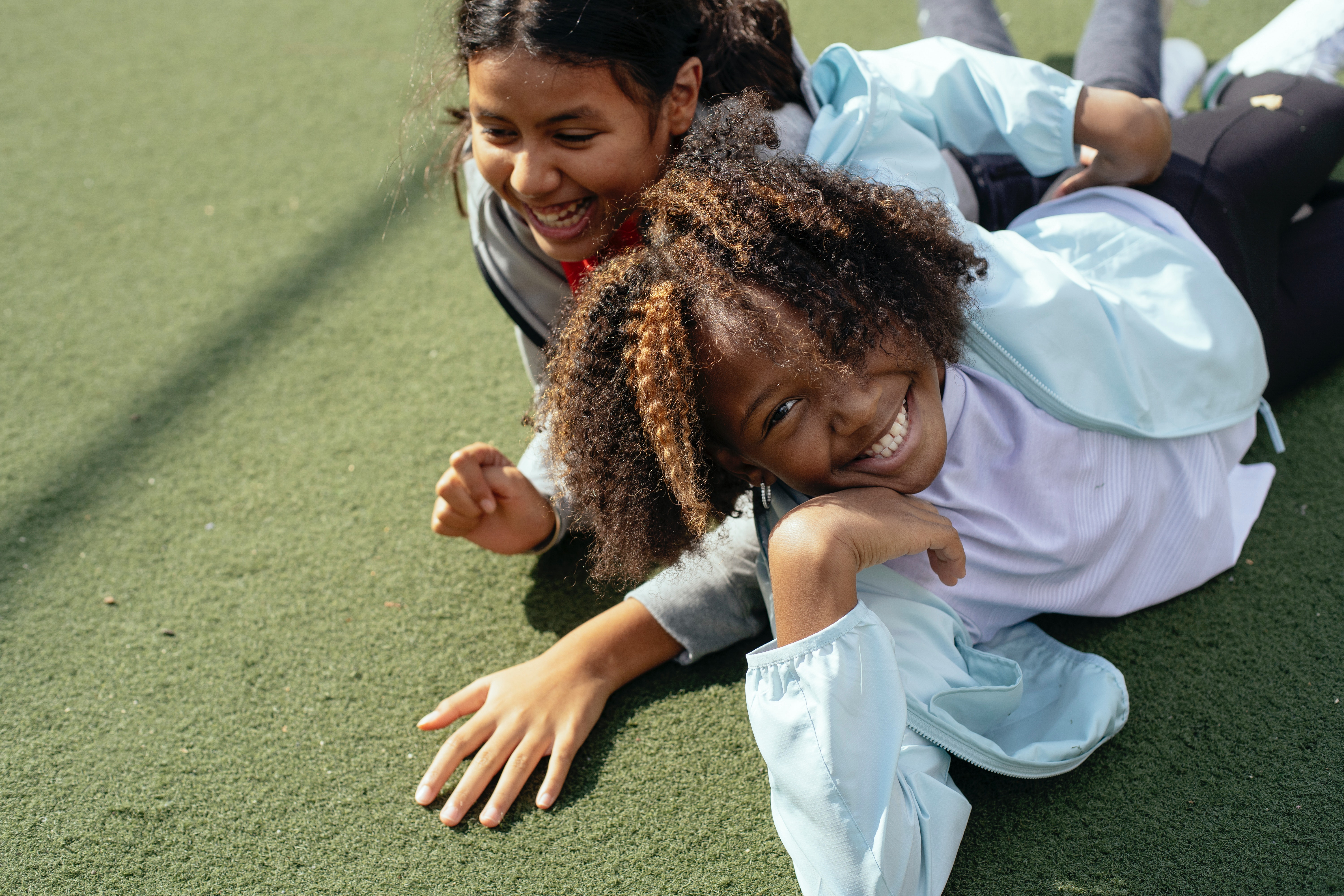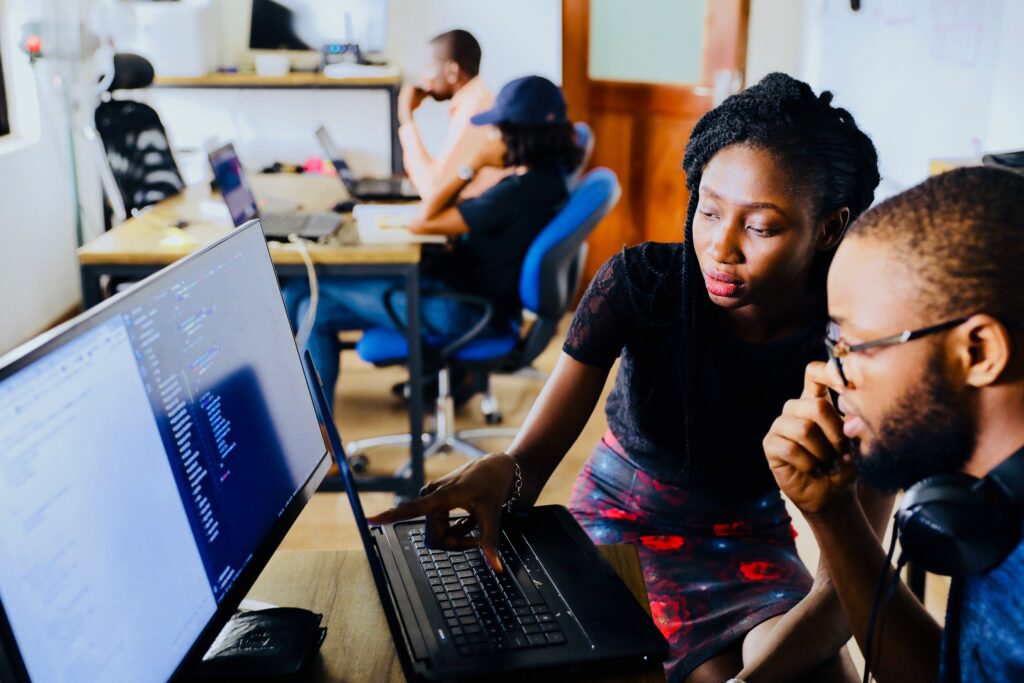Discover mental health insights for BIPOC teens. Explore personal stories and resources designed to resonate with your unique journey.

Growing up Madison always struggled with her identity as a light-skinned African American growing up in a predominantly white area. She didn’t see herself reflected in her environment, the topics taught at school or the educators teaching her and it had a real impact.
“I felt separated from my community because I am lighter .. I think that was definitely hard on my mental health,” she said.
She took it upon herself to dig further into her cultural identity and try and find that connection on her own, going to museums, helping her feel more comfortable about her identity. It helped her boost her confidence and embrace her uniqueness – and spark change. She worked to help get more representation among the student body and among the curriculum.
Amira, 17, knows that when she has a bad day that it’s okay. But she’s also learned it has been easy to find herself in a negative cycle or be cynical about the world around her.
“It’s been incredibly easy to just fall into this constant negative thought process, you know, being down on myself, being down on the world, you know just being cynical of everything around me and never stopping to find the good in anything.”
But she found it difficult talking to some people about her issues, highlighting the generational gap and the stigma in families of color when discussing mental wellbeing.
“Older generations often dismiss our problems, saying, ‘I had it way worse’,” she states, emphasizing the need for understanding and validation.
Tanais faced dual challenges: assisting her mother financially while attending school and navigating the revelation of her mom’s undisclosed mental health struggles. “I had to mature rapidly, with no guidance,” she reflects, underscoring the silent challenges many young individuals face.
These stories shared may strike a chord, reflecting the heightened mental health struggles Black, Indigenous, and People of Color teens face. Amplified by systemic issues, these experiences emphasize the need for understanding and advocacy.

We know that black/brown teens access only half the mental care of their white peers. But more nuanced research about mental health for youth of color has been lacking.
However, groups like AAKOMA are on the frontline, advocating for more inclusive research. Their “State of Mental Health Youth of Color 2022” report gives us some critical insights.
Some data might hit close to home. But if you take anything from it, know this: you’re far from alone in how you’re feeling.
• Many youth of color are in dire need of enhanced mental health support.
• Half of the participants admitted to experiencing moderate to severe depression or anxiety.
• 42% have encountered at least one form of race-based trauma.
• Latino/e and Native American Youth reported significantly higher levels of depression and anxiety at 26%; 19% of Asian American and Pacific Islander teens reported depression and anxiety.
• Suicide attempts are twice as high for Native/Indigenous youth compared to white youth, with many other youth-of-color groups also exceeding rates of their white peers.
If you’re a teen of color navigating through this, hang tight. The systemic barriers and discrimination can be overwhelming, but change, though slow, is happening.
Meanwhile, know that you can start taking control of your mental health, one step at a time, starting right now.
???????? Choose You: Prioritize your well-being. Simple acts can make a world of difference: drink a refreshing glass of water, take a few deep, grounding breaths, or jot down something you’re grateful for today. Allow yourself moments to stretch, compliment yourself, or even declutter a small corner of your room.
???? ???? Recharge & Boundaries: It’s crucial to recognize when you’re stretched thin. Give your mind a breather. Maybe it’s meditating for a few minutes, setting aside screen-free hours, or simply taking a moment to stretch between tasks. Cultivate habits that ensure your energy isn’t constantly drained.
???? ???? Leisure Moments: Life isn’t just about hustling. Amidst school and chores, indulge in sheer enjoyment. Whether it’s binging a show you’ve been waiting for, reading a book, challenging your friends to that new multi-player game, finally trying out thst TikTok dance or taking a relaxing shower or calm walk, make sure to carve out moments purely for pleasure.
???? ???? Tap into your cultural identity: Embrace the beauty of your roots. Maybe cook a traditional meal from your culture, attend cultural events, explore fashion from diverse background or even create artwork inspired by your heritage. Seek out videos where people of your cultural identity speak openly about mental health online, making that connection between your heritage and well-being all the more meaningful. Celebrate who you are – it’s not just empowering, it’s beneficial for your mental wellbeing.
???? ???? Seek support in meaningful relationships: It feels good to be understood. Whether it’s your cousin who just gets it, that auntie or teacher who seems pretty open and cool, or your BFF from school – lean on them. If you’re unsure where to turn, many organizations cater specifically to BIPOC youth. They’re ready to guide you, and they understand your unique experiences.
The Steve Fund: A hub for young POC mental health. They team up with experts and youth to boost mental well-being understanding and support. Dive into their resources: watch videos of teens like Tanais discuss mental health, tune into podcasts, and explore more tools.
BEAM: Black Emotional and Mental Health Collective. BEAM has resources on education, training and advocacy. Why not try their peer support spaces and check in and connect with other black youth.
AAKOMA Project: The AAKOMA (African American Knowledge Optimized for Mindfully-Healthy Adolescents) Project is a charity helping to advance the mental health of young people of color and their families. They provide tailored tools, educational programs, and resources.
Black Girls Smile: This initiative designed to champion the mental health of black women and girls puts mental wellness as a vital component of overall health. Black Girls Smile offers a wealth of resources and support. This includes educational programs, workshops, and community outreach events aimed at promoting mental health awareness and reducing the stigma surrounding mental health.
Disclaimer: This website offers general information and is not a substitute for professional advice. We are not clinicians or trained professionals; this information should not replace seeking help from a qualified healthcare provider. Please consult a healthcare provider for personalized guidance.